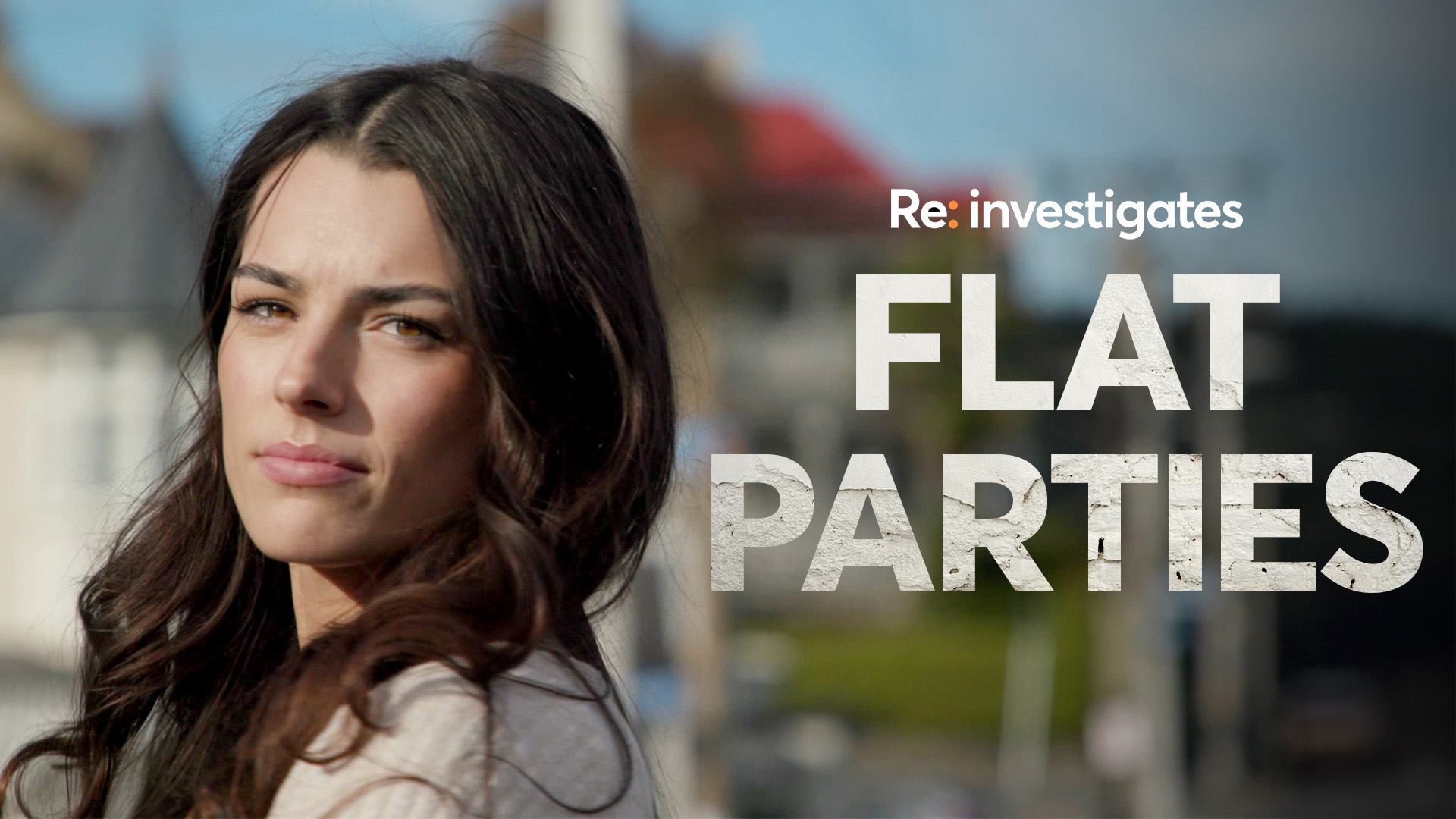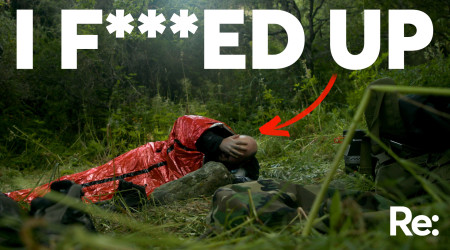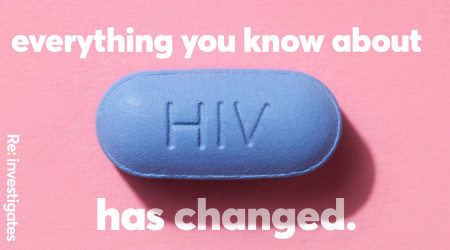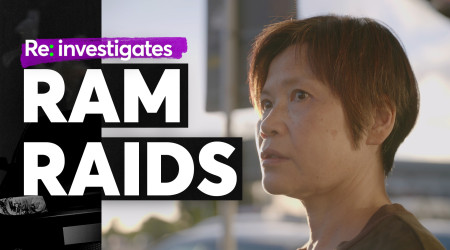Her best friend died at a Dunedin flat party. Now she's calling for change
Megan Prentice's best friend Sophia Crestani died at an overcrowded Dunedin flat party in 2019.
On a mission to ensure a tragedy like this never happens again, Megan is determined to make Dunedin's party culture as safe as it can be for other students.
It's her promise to Sophia: "No one else should ever have to lose their best friend and no other 19-year-old person should have to die having fun in Dunedin."
Megan carries her best friend with her in the form of a dinosaur necklace they both wore - Sophia was buried wearing hers and Megan continues to wear hers everyday. She also has it tattooed on her arm just in case she ever loses it...
The Manor
Megan and Sophia were best friends since high school and together came to Dunedin to study at the University of Otago.
The day of Sophia's death, they hung out just like always.
It was Saturday, October 5. They went to get Megan's ears pierced and made dinner together, before getting ready for the party everyone was talking about: the last party at The Manor.
The Manor is a two-storey flat in the heart of Dunedin's student area. It had recently been purchased by a student hall, so this would be the last party at the flat.
Word had spread wide - around 500 people showed up that night.
Megan and Sophia hadn't been there long before it became so crowded they struggled to move.
The pair decided to go upstairs to find somewhere less crowded. But as they ascended, partygoers in front fell backwards and they ended up at the bottom of a pile-up.
"I was being completely crushed. I was in complete disbelief. I was like, 'Oh, my God, I can't believe this is how I'm going to die.'"
Megan doesn't remember getting pulled from the pile. Her next memory is sitting on the sidewalk outside the flat, panicking about where Sophia was.
It was everyone's worst nightmare - Sophia had died.
Party culture
Dunedin has a unique and intense student culture.
The University of Otago has more than 20,000 students. Most of them live within a 6x6 block surrounding the university.
So many students living this close together has created the raucous party culture the city is known for - with events like the annual Hyde Street keg party bringing thousands of students together.
Peter Innes-Jones owned Gardies Bar from 1992 until its closure in 2011.
"It could be carnage at night. But it was good carnage, because it was controlled carnage," Peter says.
"It was in a supervised, controlled environment. I've got 500 people there and a young staff. I knew when things were starting to lose the shape of it. And so you would do something about it. That's what we did. We were publicans."
In the 1990s, Gardies and the other student venues competed with each other - offering deals like 50c wine and $2 double shots. For a period, The Cook was even offering reverse door charges, where they would pay you as you entered the bar.
But at the end of 1999, the law changed allowing supermarkets to sell beer - and the bars couldn't compete.
"When the supermarkets came along they took the majority of the sales," says Peter. "Then 80 percent of that liquor is sold elsewhere and how do we pay our bills?"
The bars struggled for a decade to keep their heads above water, but ultimately they all threw in the towel, with the university making several of the bar owners purchase offers they couldn't refuse.
"[University of Otago] offered good money for this place because they just wanted it. They thought they were closing down a problem," Peter says.
"But absolutely nothing changed on Castle Street. Nothing changed on Hyde Street. It's still just parties and flats, people having a good time."
'Shitty old flats'
Megan's experience of party culture in Dunedin was almost entirely in flats.
"After what happened at the Manor, one of the number one questions I got asked mainly by adults was, 'Where was your uni bar?'", she explained.
"I heard stories from people's parents of like three-storey bars, where you could have so many students in them and that is just mind blowing to me. Like, I would love to have experienced that.
"But all we had was these shitty old flats."
She never experienced Dunedin when it was full of iconic student bars such as The Cook, The Ori, The Bowler and Gardies.
In the years before Megan started university, each of these student venues had closed down - one by one. Some because of safety concerns. The only student venue left when Megan and Sophia started university was Starters Bar, which later closed in 2021.
Megan believes this massively contributed to overcrowding at flat parties.
"I believe Dunedin needs to open at least one student venue. That's going to release so much of the pressure of flat parties being the only place for students to go."
The Sophia Charter
Soon after Sophia's death, her parents Bede and Elspeth gathered representatives from key organisations in the city to address the question: "How do we make Dunedin fun, but safe?"
The charter was signed by The University of Otago, Otago University Students' Association, NZ Police, Dunedin City Council, Fire and Emergency and the Otago Property Investors Association.
"There was a little bit of backlash when it was launched because it was kind of viewed as this thing that was going to stop the fun," says Megan. "And I think that was purely because they didn't really engage with students."
In the two years since its creation the charter has produced memorials and events in Sophia's honour, with support from Megan and Sophia's other friends - including a bench outside the university clocktower, a cleanup of Castle Street each semester and a scholarship for second-year maths and statistics students.
What's being done?
University of Otago vice-chancellor David Murdoch says he is continuing to fund the proctor's office and Campus Watch.
David says students are encouraged to contact the proctor's office and Campus Watch when they are planning a flat party so they can provide advice and support for keeping the party safe.
The university's main role is to provide education, but David says they "recognise the responsibility, the fact that [students are] here because of the university, and that's part of the environment".
Otago University Students' Association (OUSA) has taken a similar approach with its support of Good One, a website where people can register their party with local police. Police then contact those who register to discuss their party and the safety precautions they should take.
OUSA student president Melissa Lama says using the platform isn't just about informing police, but for students to understand their rights and responsibilities as hosts and "make sure they know how to keep themselves and guests safe".
Melissa also explains that police have been closing down whole streets to traffic when students start spilling onto the streets.
Police area commander of the Otago Coastal Area, Inspector Metenga Grey, says the operational decision to close streets in the student suburb is "in no way linked to the Sophia Charter".
"The decisions are made by police staff at the time to maintain public safety."
However, Melissa says many of these parties have started spilling into the street because students are following police advice about safe house capacity and only having parties on the first floor.
"With reduced capacity and the remaining pressure of thousands of students wanting to party with no venue to go to, this is partly why parties have begun to spill into the streets, requiring police to close them off," says Melissa.
Dunedin Mayor Aaron Hawkins explains, "There's no doubt parties can get out of hand, and we’ve seen the tragic consequences of that more than once."
Aaron says solutions will need to be about supporting young people's desire to party, rather than trying to change it.
"We need to make sure they have appropriate support around them and help to guide them through this period in their lives. Supervised student venues can play an important part in this.
"Dunedin City Council has been working with groups like Save Dunedin Live Music to reestablish Dunedin's once thriving venue scene."
More stories:
How Dunedin became the MDMA capital of NZ
Wastewater testing shows MDMA use has gone up 40% in the last three years in the Southern region.
Inside ram raids: Why NZ teens are crashing cars into shops
Nearly 90% of ram raid offenders are under the age of 20, with the majority under 17.
Inside NZ’s first domestic violence refuge for pets
23% of people in a Women’s Refuge survey had a pet killed by their partner.








